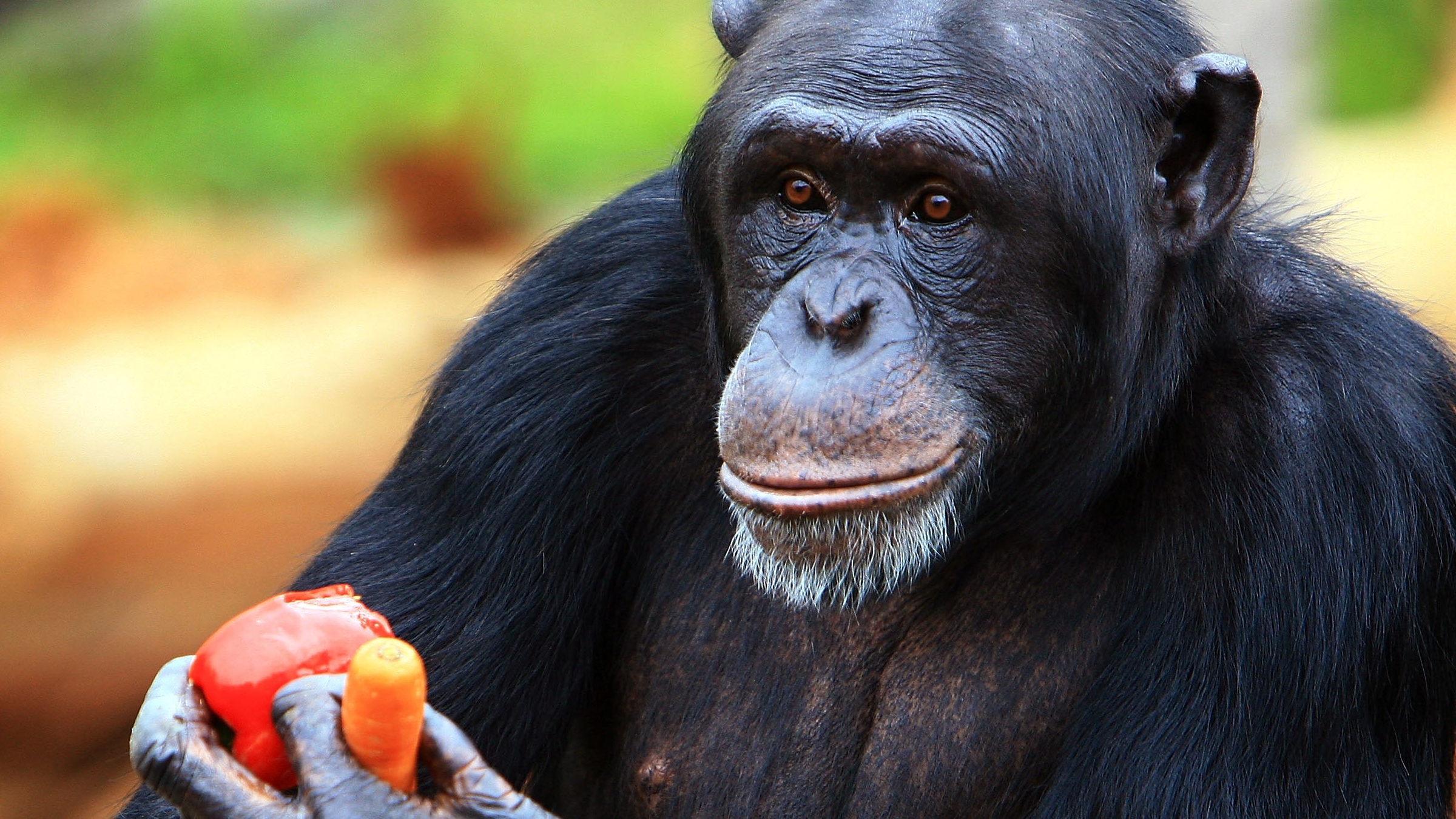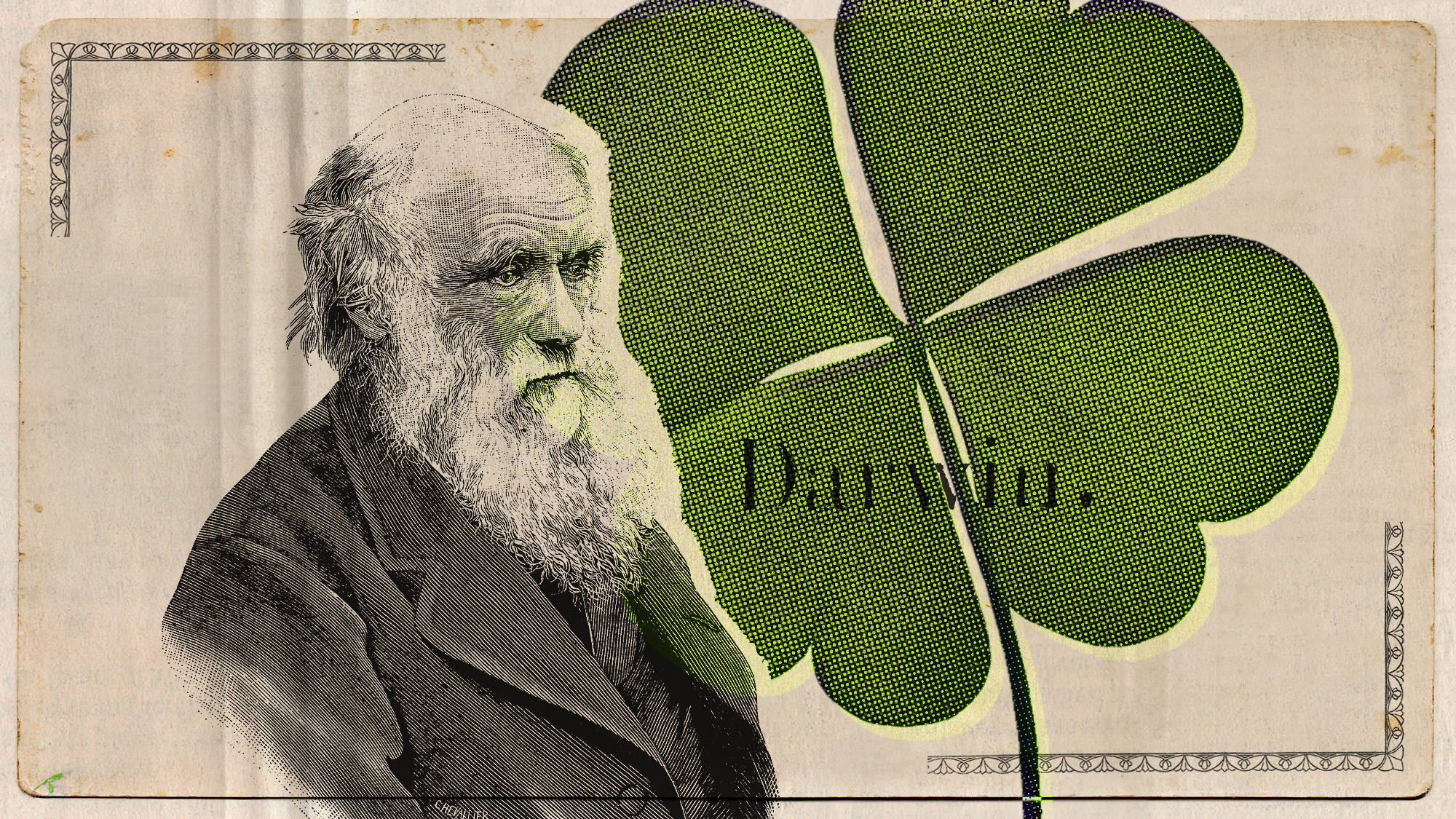How chimpanzee ‘lip smacking’ can unlock mystery behind human speech
New study reveals rhythm of great apes’ communications is identical to spoken language

A free daily email with the biggest news stories of the day – and the best features from TheWeek.com
You are now subscribed
Your newsletter sign-up was successful
Researchers are a step closer to solving one of the greatest puzzles of evolution, after discovering that chimpanzees smack their lips in a rhythm like that of spoken language.
That monkeys use vertical jaw movements to communicate with each other was already known, but now a new study focusing on chimpanzees has revealed that the great apes’ mouth signals follow “the same pace as humans speaking”, Sky News reports.
The scientists believe their findings, outlined in a newly published paper in the journal Biology Letters, prove that human language has “ancient roots within primate communication”.
The Week
Escape your echo chamber. Get the facts behind the news, plus analysis from multiple perspectives.

Sign up for The Week's Free Newsletters
From our morning news briefing to a weekly Good News Newsletter, get the best of The Week delivered directly to your inbox.
From our morning news briefing to a weekly Good News Newsletter, get the best of The Week delivered directly to your inbox.
According to ScienceAlert, “no matter what language we are speaking, humans around the world are known to open their mouths two to seven times per second while talking (2 Hz to 7 Hz)”.
Although this rhythm has been seen in other monkey species such as gibbons, orangutans and macaques, “the lip smacks of the closest species to humans - the African great ape - had never been studied” until now, adds Sky News.
The researchers studied video recordings of four chimpanzee populations - two in European zoos and two in the wild in different parts of Uganda - and discovered that they produced lip-smacks at an average speech-like rhythm of 4.15 Hz.
–––––––––––––––––––––––––––––––For a round-up of the most important stories from around the world - and a concise, refreshing and balanced take on the week’s news agenda - try The Week magazine. Start your trial subscription today ––––––––––��––––––––––––––––––––
A free daily email with the biggest news stories of the day – and the best features from TheWeek.com
Study author Dr Adriano Lameira, from Warwick University department of psychology, said the results “prove that spoken language was pulled together within our ancestral lineage using ‘ingredients’ that were already available and in use by other primates and hominids”.
“This dispels much of the scientific enigma that language evolution has represented so far,” Lameria said, adding that “our ignorance has been partly a consequence of our huge underestimation of the vocal and cognitive capacities of our great ape cousins”.
The scientists are calling for future research across primate species in order “to find out how these human-like rhythms arise in both individuals and populations”, says ScienceAlert, which adds that “knowing this might just tell us more about the evolution of our own language”.
-
 How the FCC’s ‘equal time’ rule works
How the FCC’s ‘equal time’ rule worksIn the Spotlight The law is at the heart of the Colbert-CBS conflict
-
 What is the endgame in the DHS shutdown?
What is the endgame in the DHS shutdown?Today’s Big Question Democrats want to rein in ICE’s immigration crackdown
-
 ‘Poor time management isn’t just an inconvenience’
‘Poor time management isn’t just an inconvenience’Instant Opinion Opinion, comment and editorials of the day
-
 Retro tomatoes: a species of the plant is evolving backward
Retro tomatoes: a species of the plant is evolving backwardUnder the radar Environmental factors may play a role
-
 Intelligent life may be more common than we thought
Intelligent life may be more common than we thoughtUnder the radar Humans were more likely a predictable result of planetary conditions than a fluke, says new research
-
 Luck be an evolutionary lady tonight
Luck be an evolutionary lady tonightUnder the Radar Evolutionary change is sometimes as simply and unpredictable as a roll of the dice
-
 Octopuses could be the next big species after humans
Octopuses could be the next big species after humansUNDER THE RADAR What has eight arms, a beaked mouth, and is poised to take over the planet when we're all gone?
-
 Richard Branson’s Virgin Galactic and Jeff Bezos’s Blue Origin: the new space race?
Richard Branson’s Virgin Galactic and Jeff Bezos’s Blue Origin: the new space race?Speed Read Branson has declared space open for business. Is that still a pie in the sky?
-
 Russia and China joining forces to build first Moon base
Russia and China joining forces to build first Moon baseSpeed Read Lunar pact represents ‘all kinds of security threats’ to UK and US, expert warns
-
 Mystery of where Stonehenge stones came from finally solved
Mystery of where Stonehenge stones came from finally solvedSpeed Read But how the builders moved the huge stone megaliths to the Salisbury site remains a mystery
-
 Scientists discover new variety of black hole
Scientists discover new variety of black holeSpeed Read Astronomers had previously missed entire class of dead star